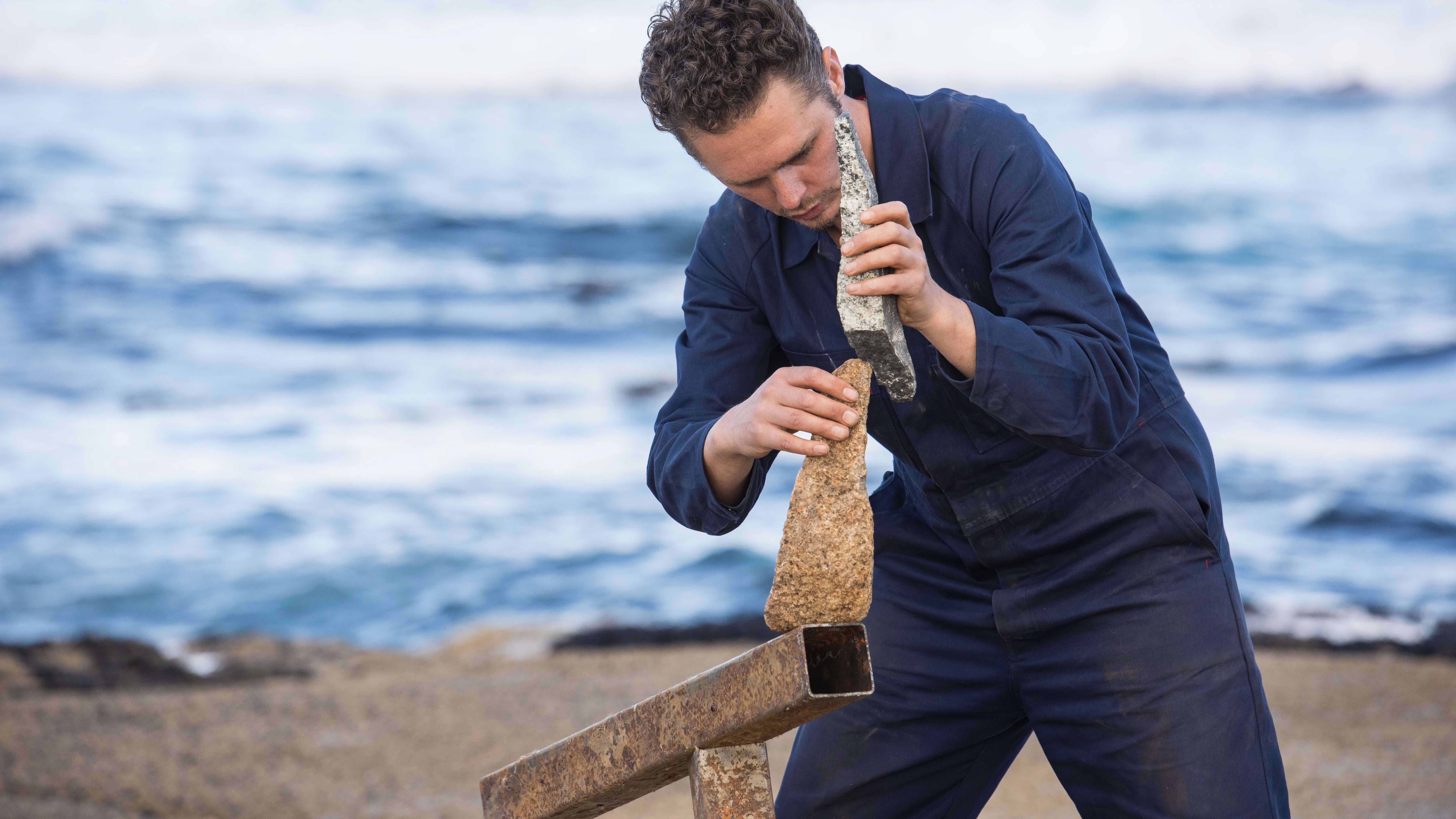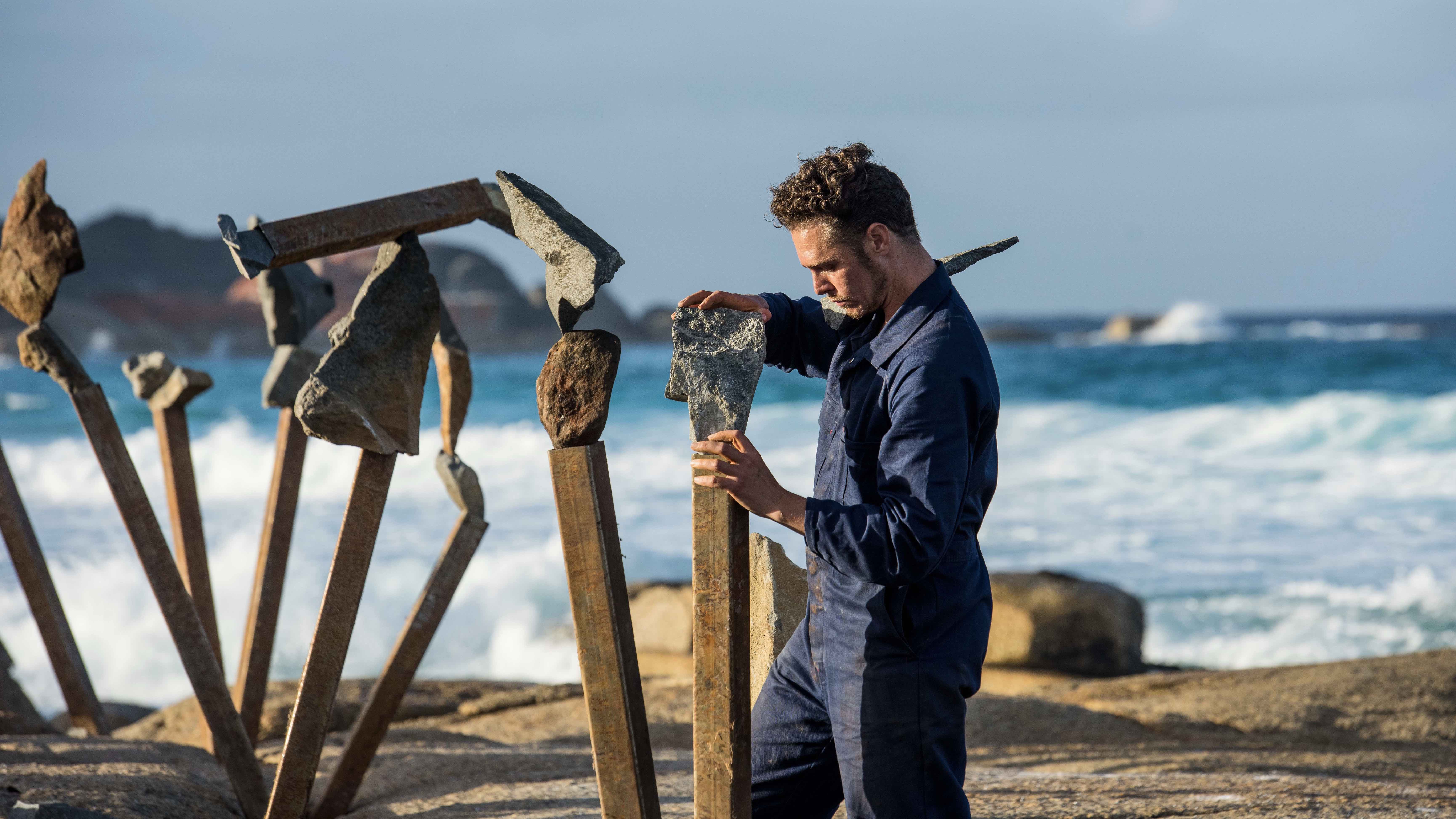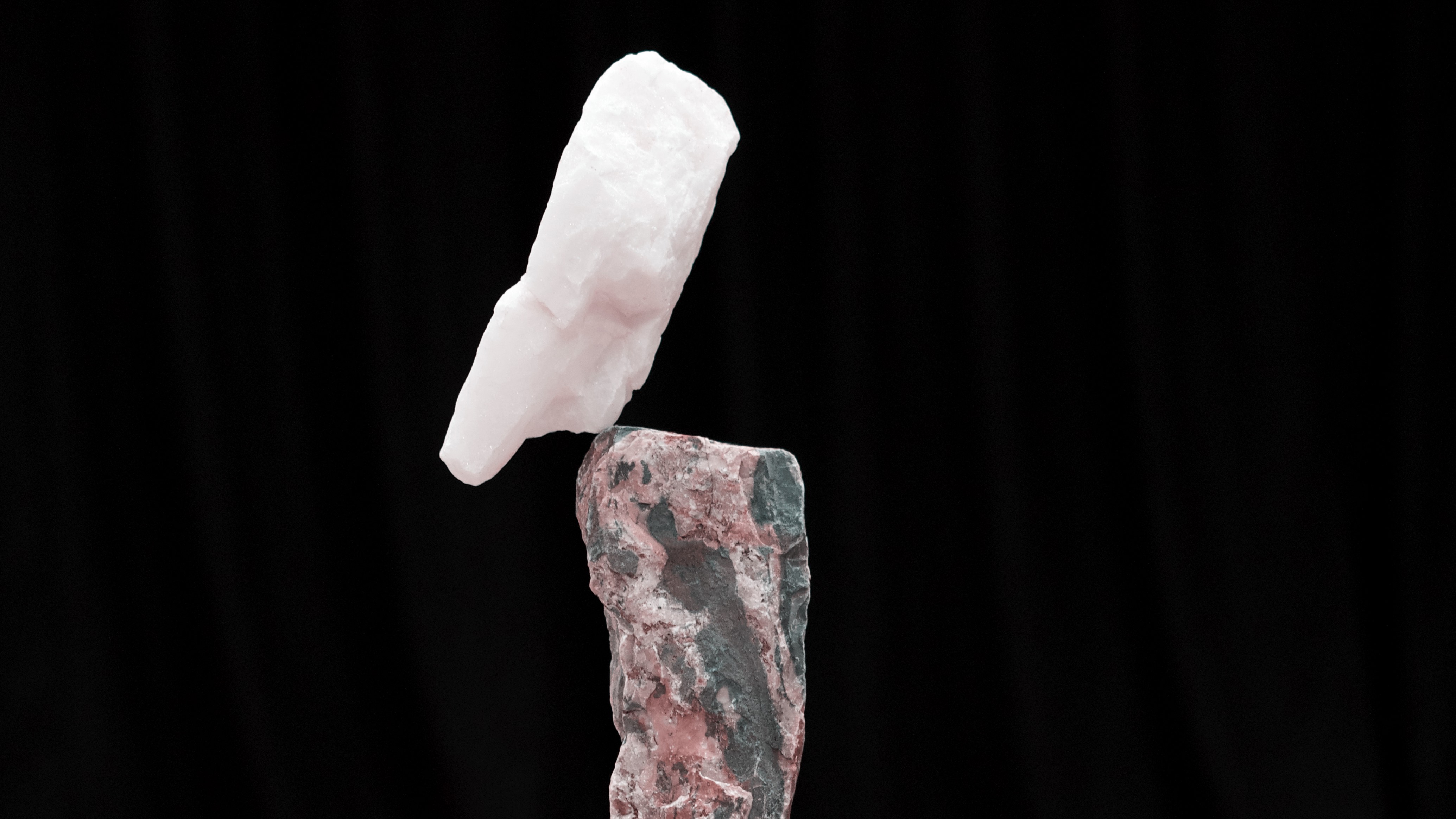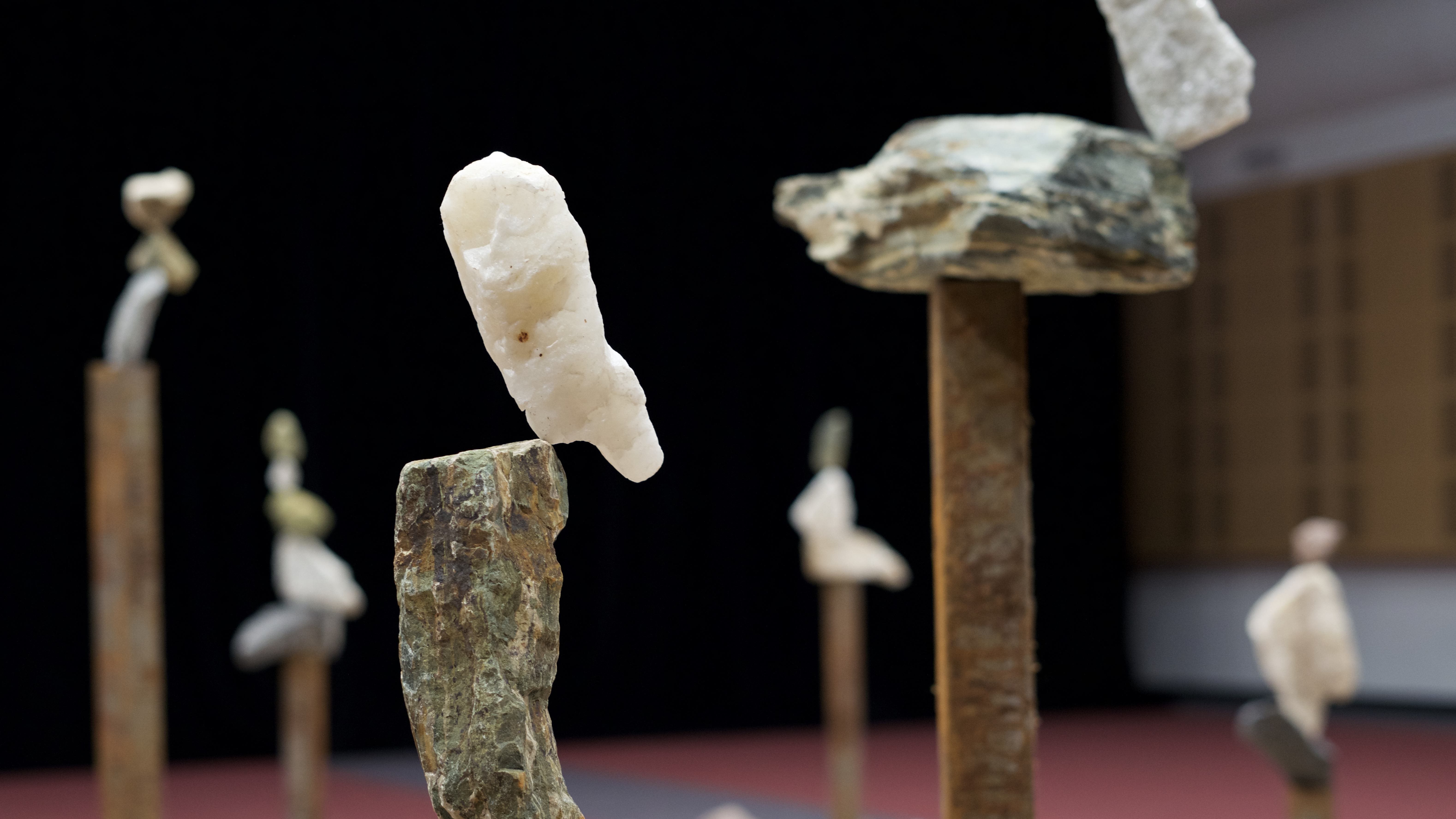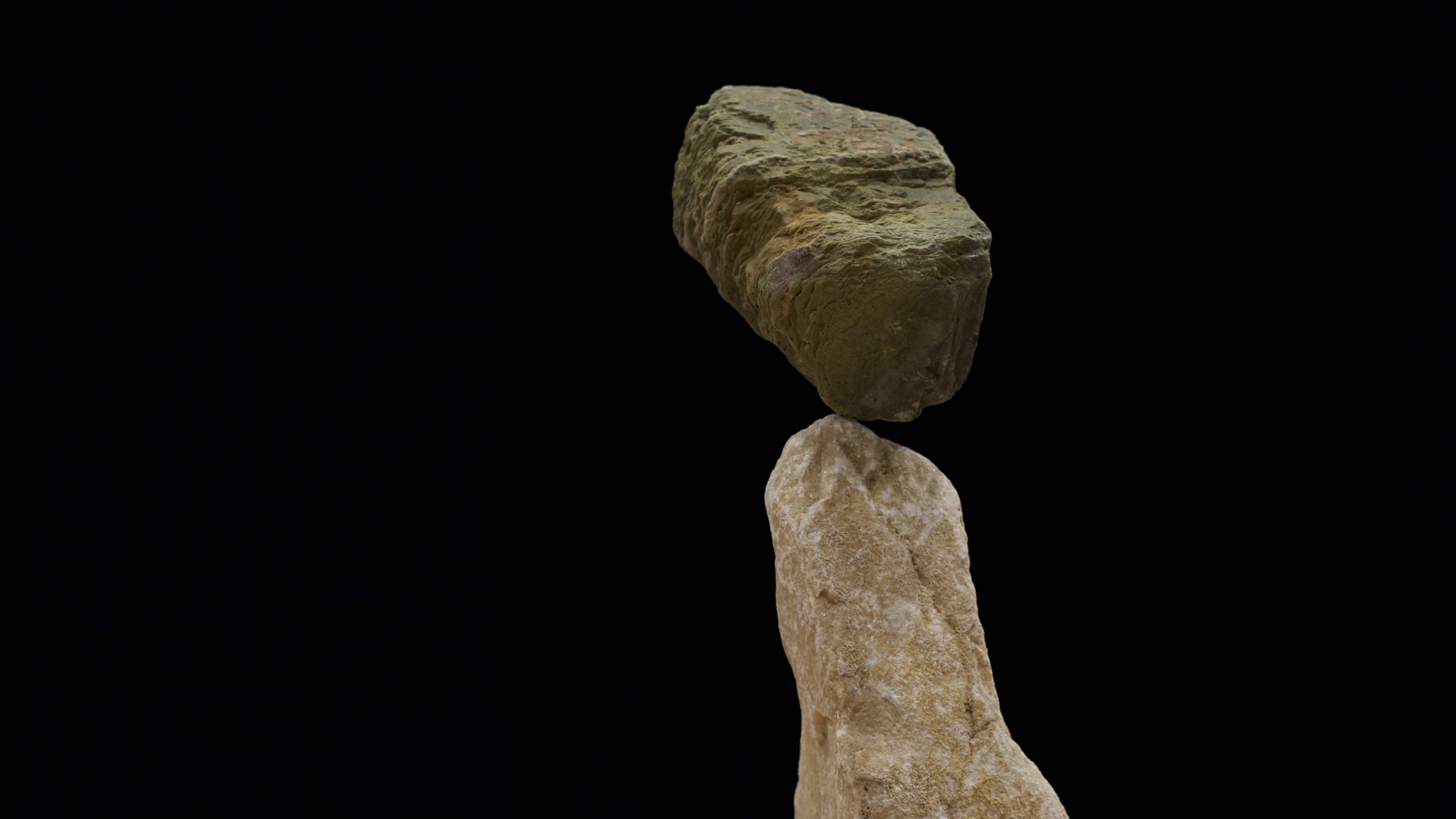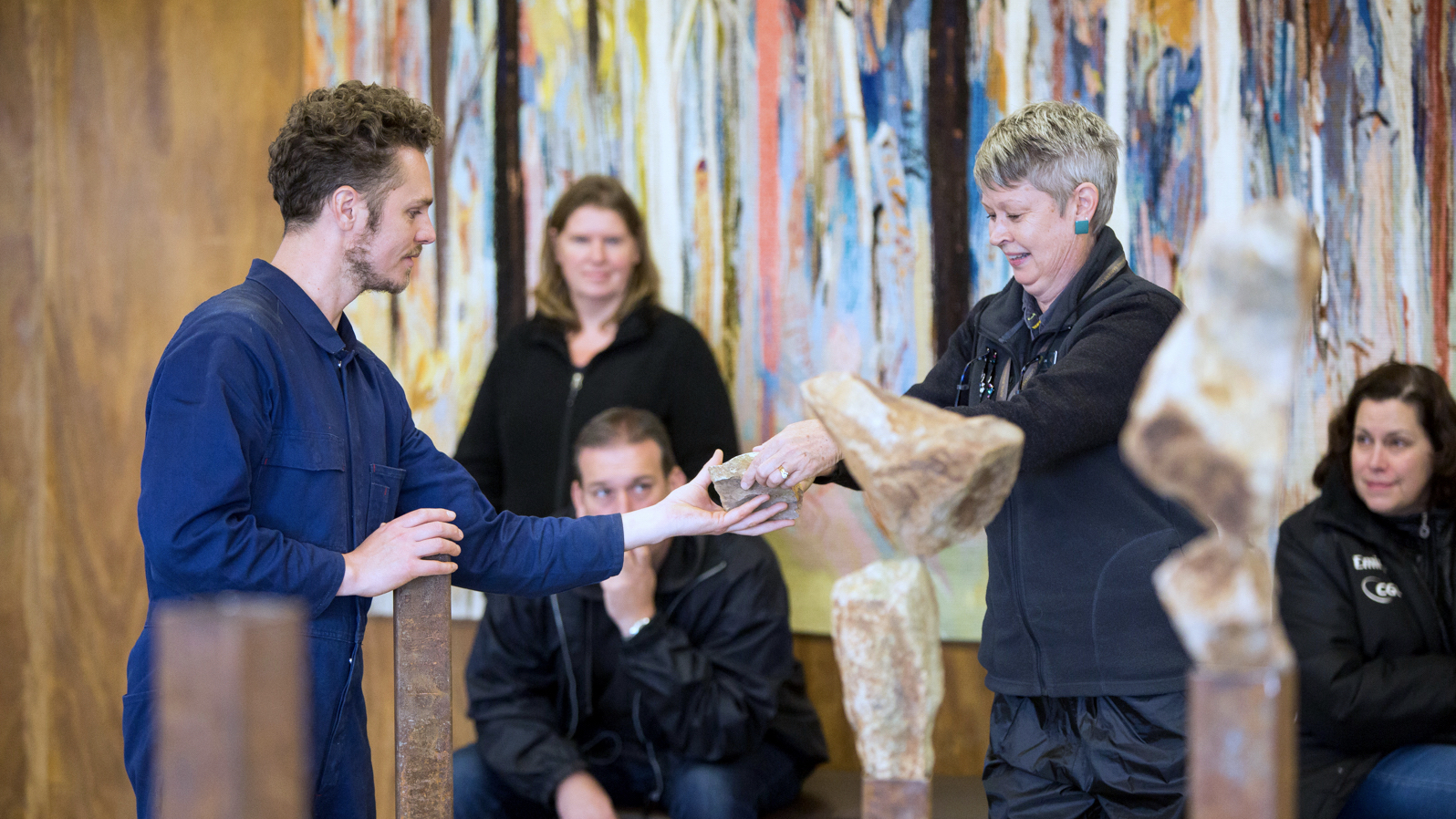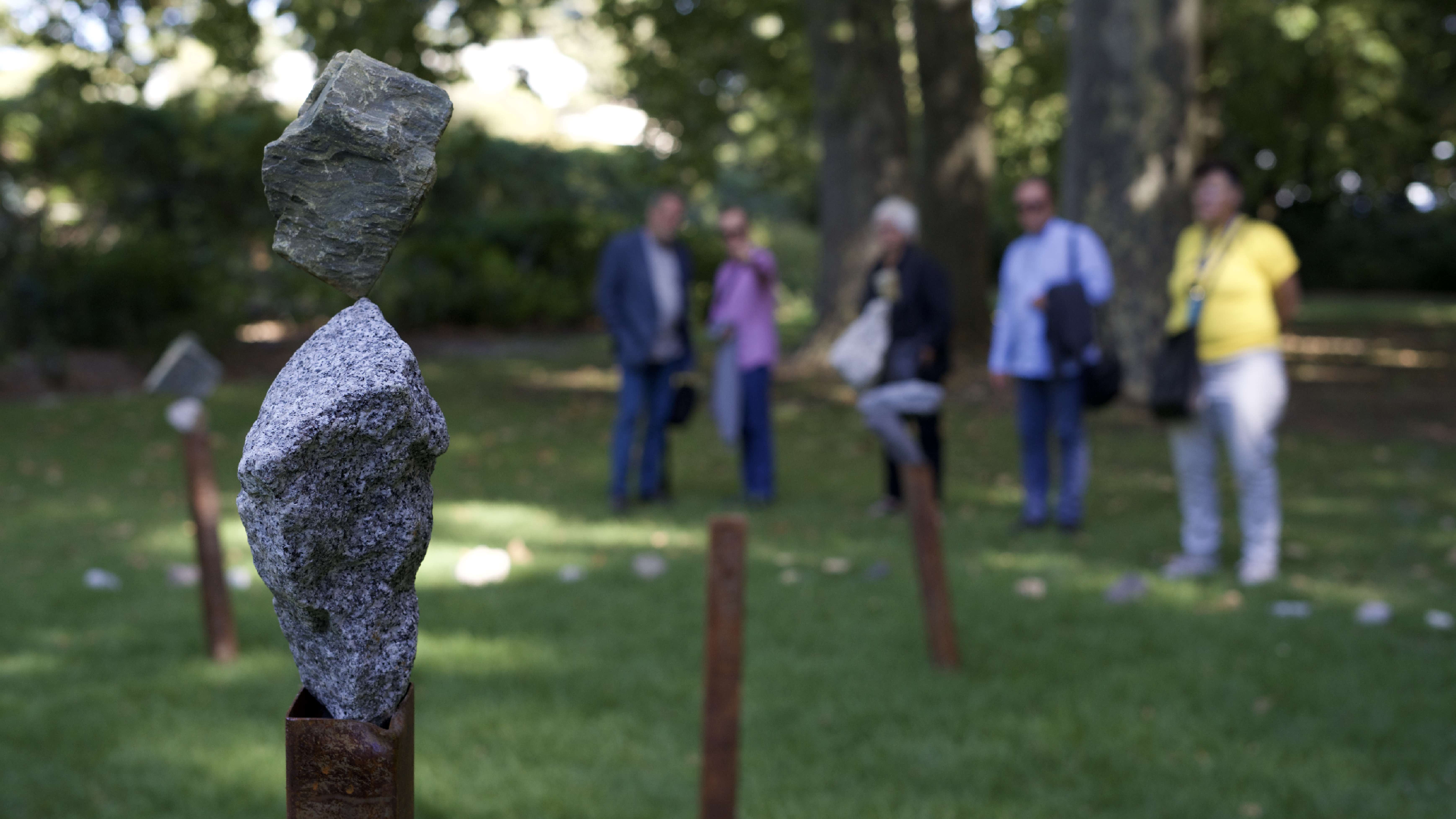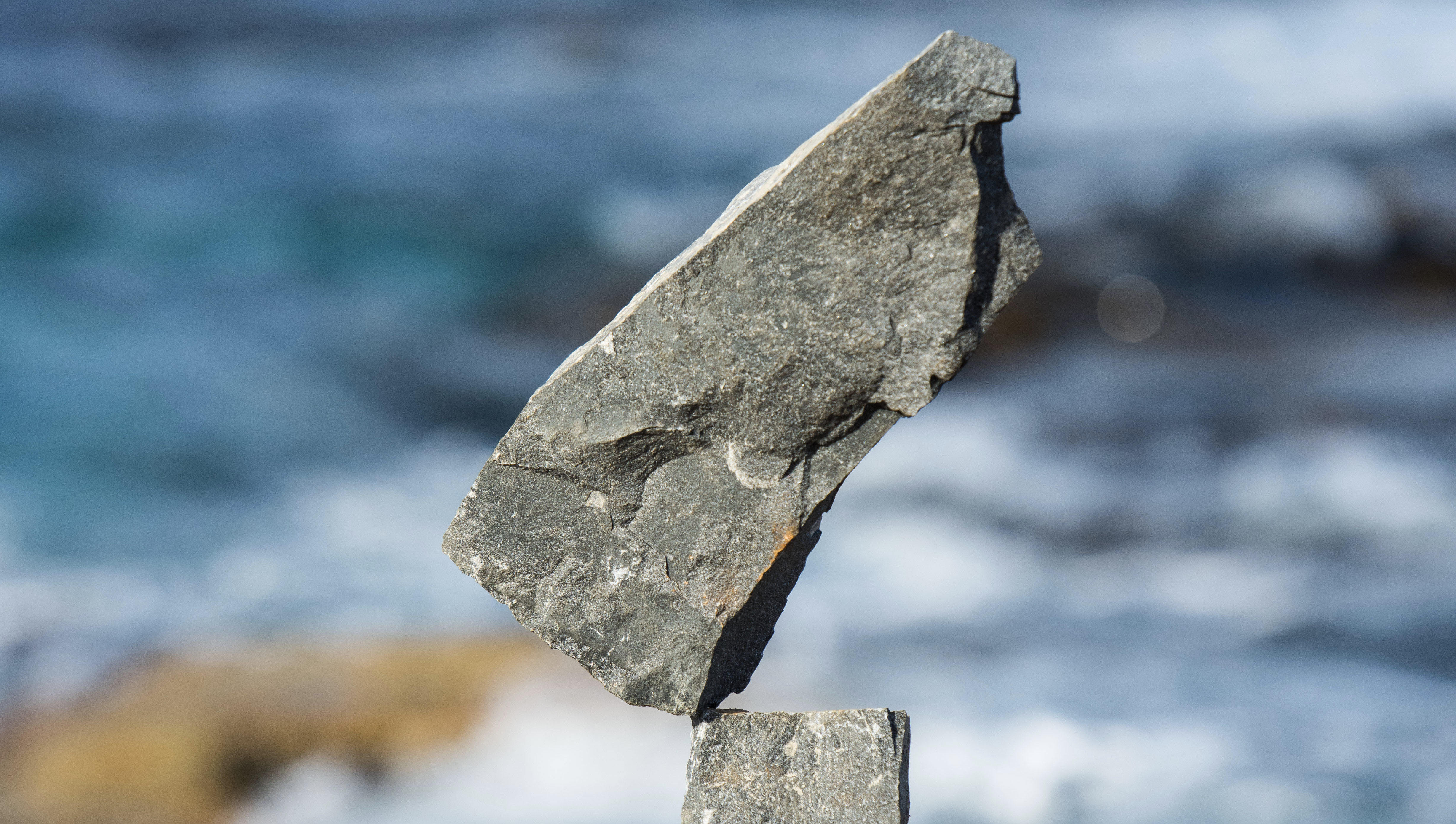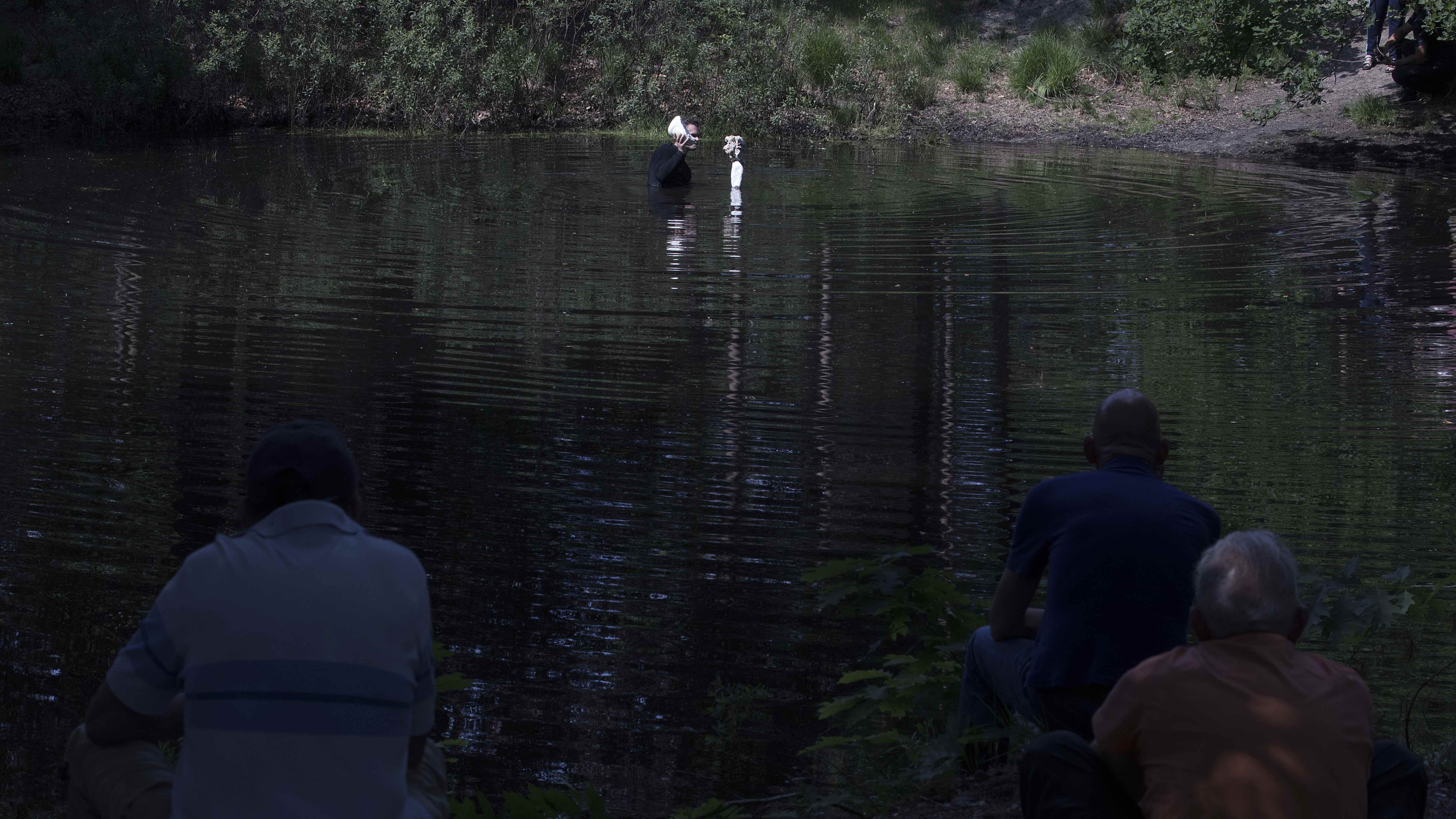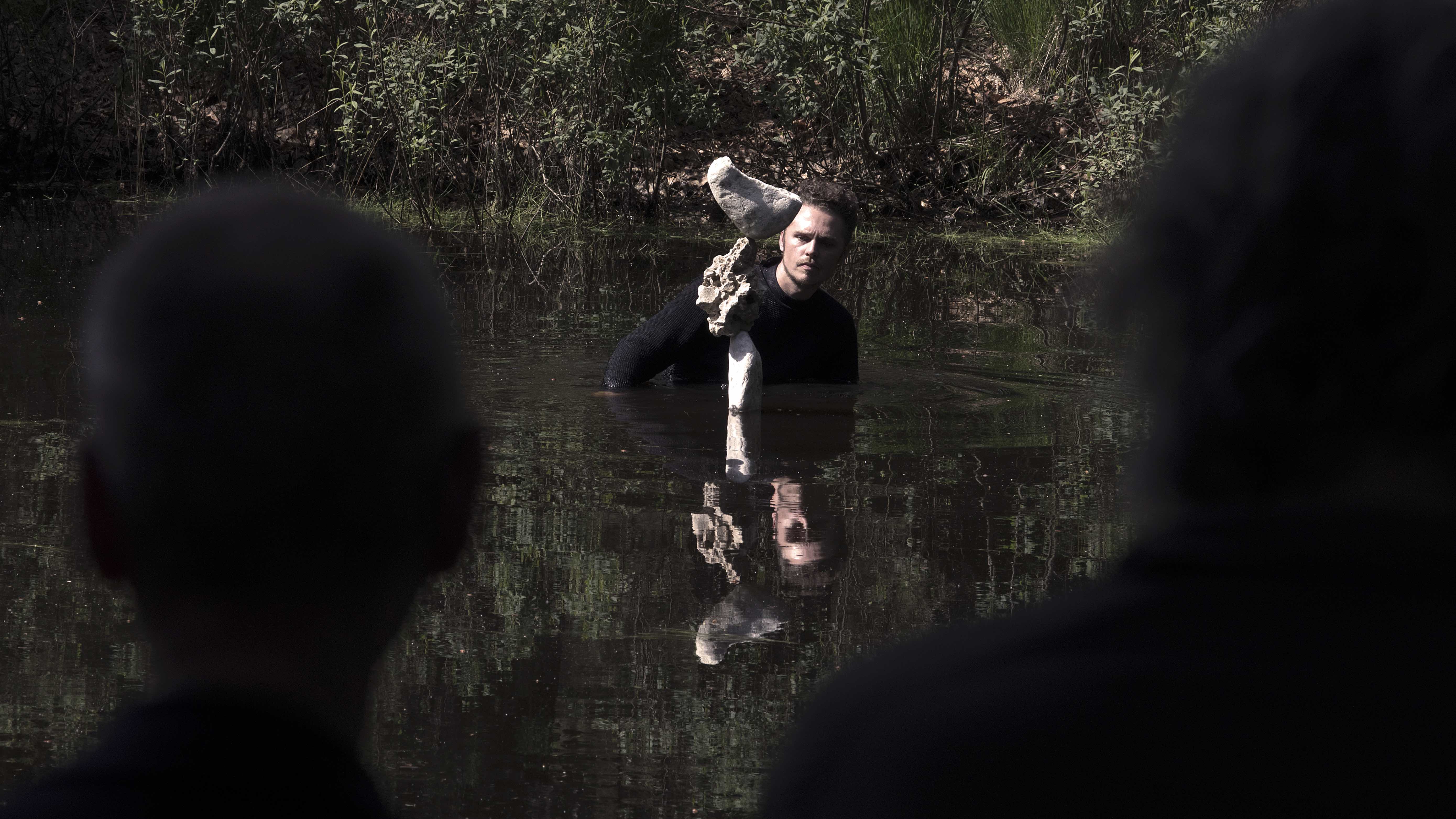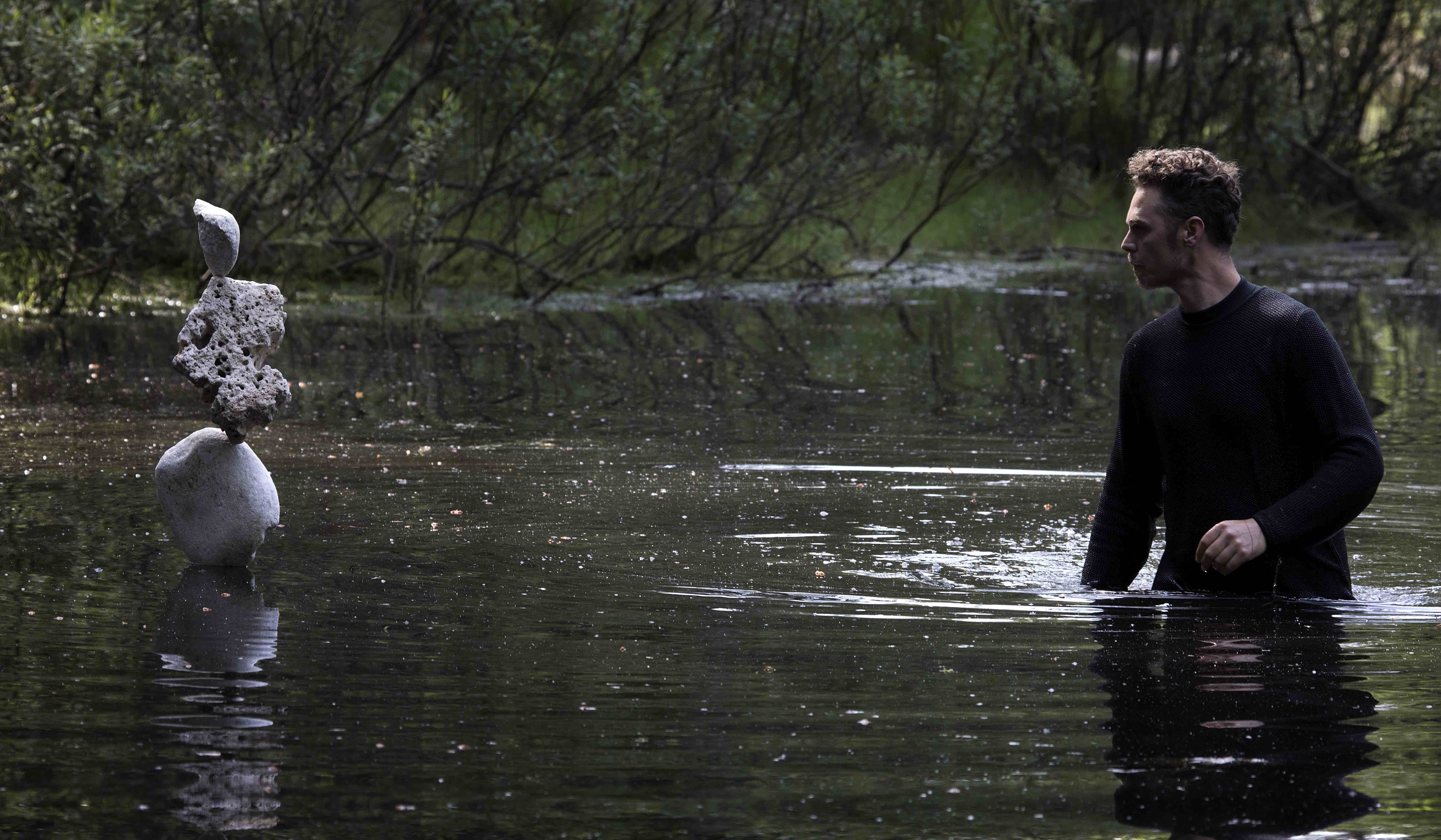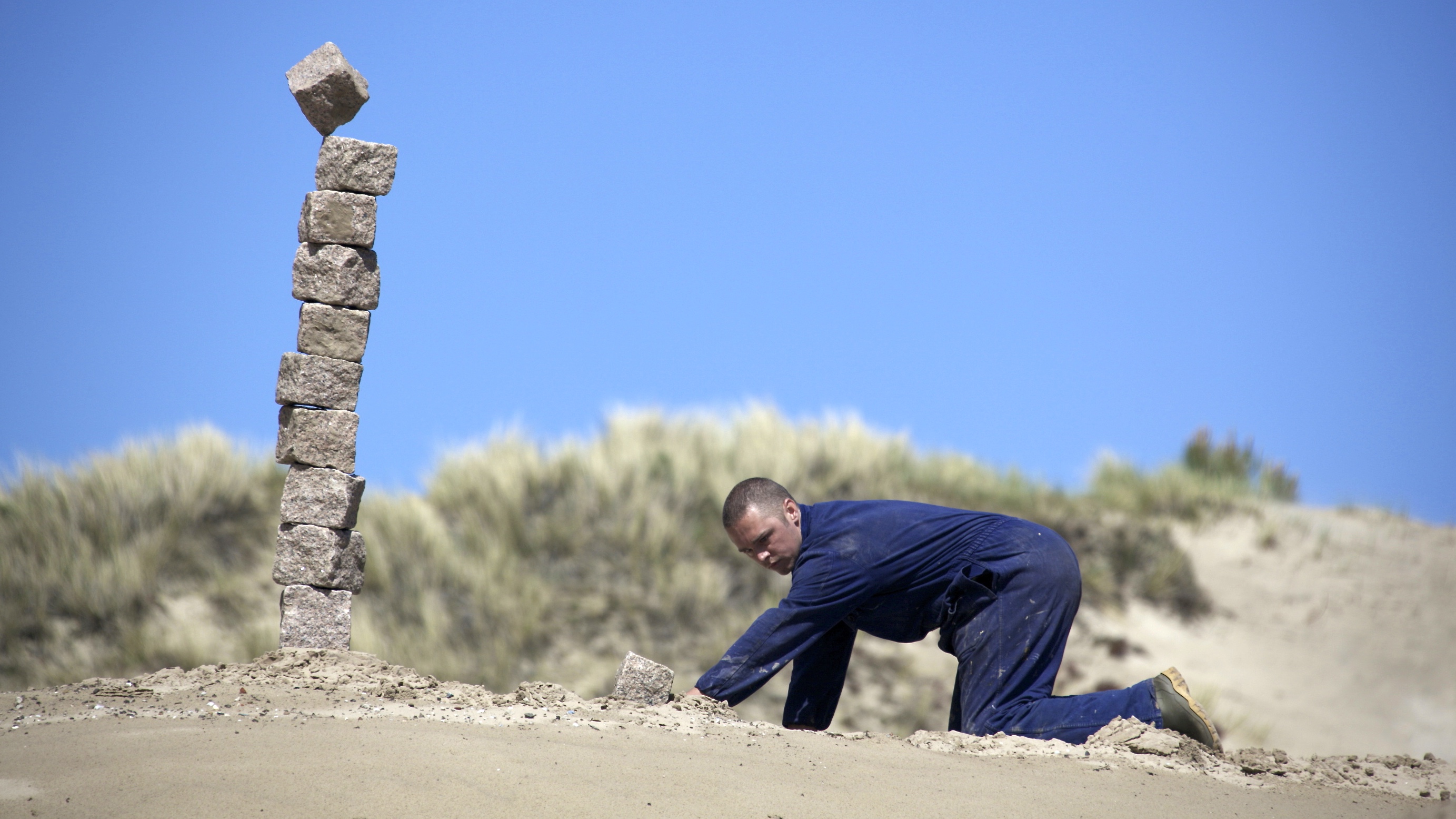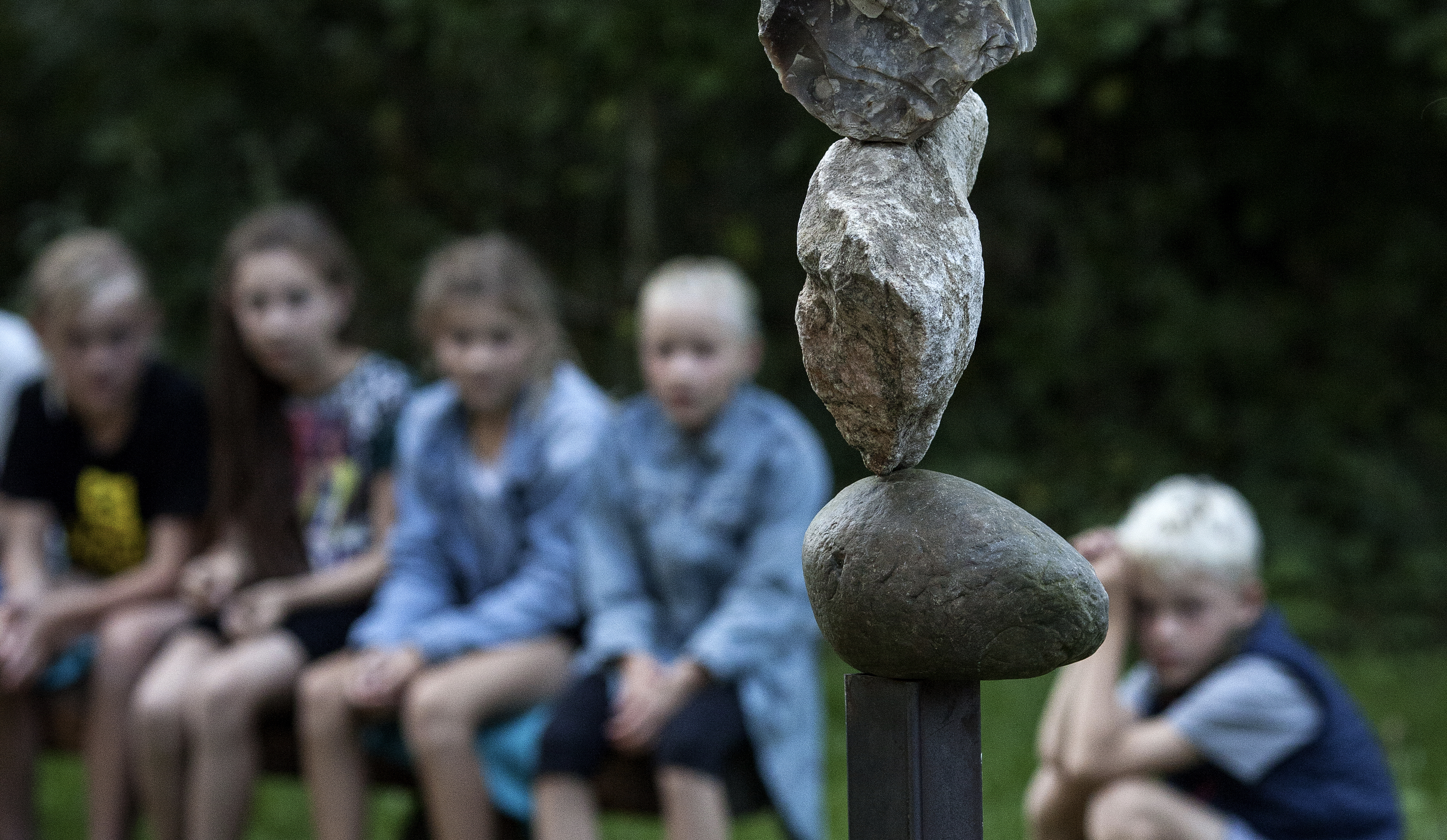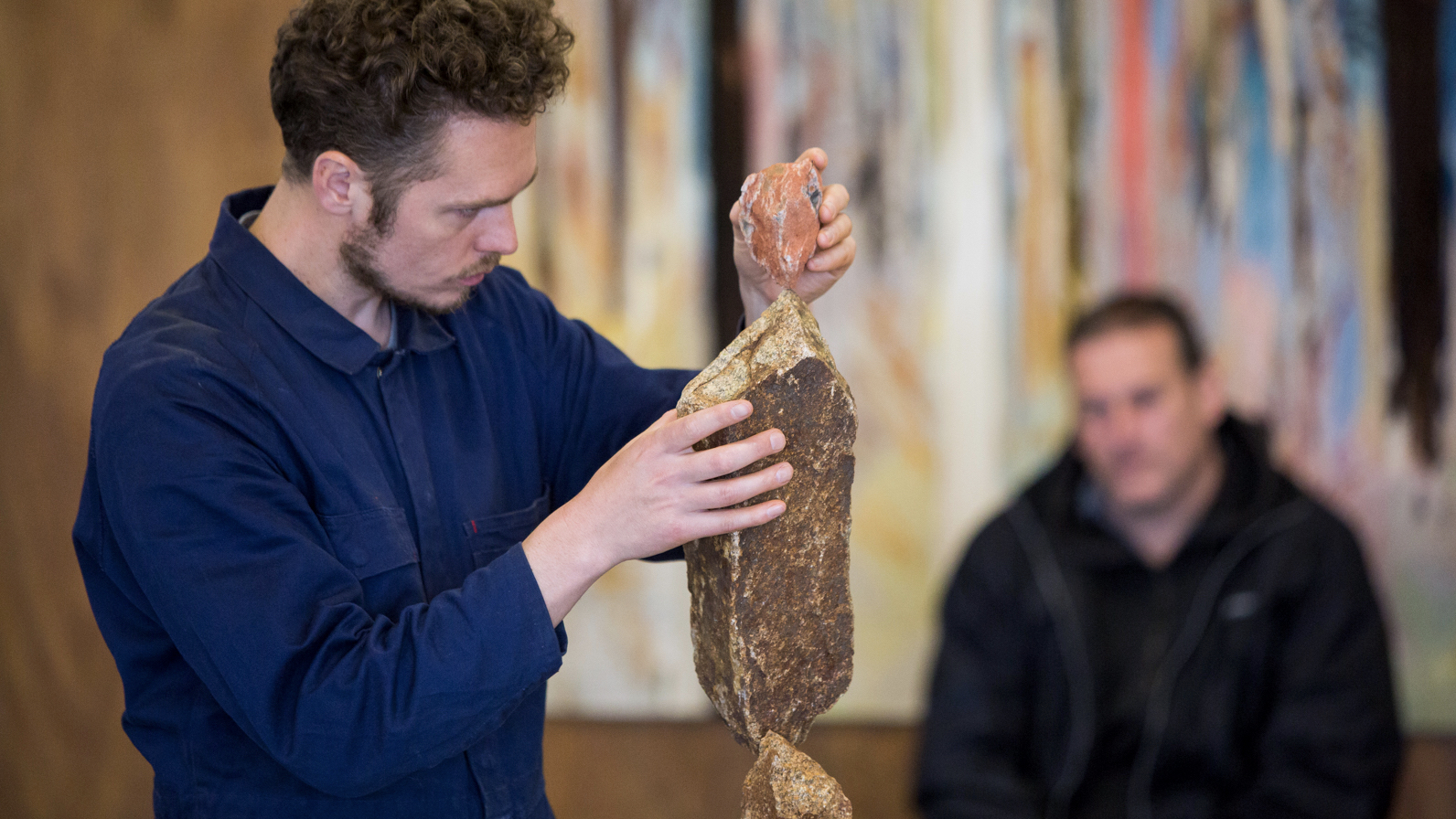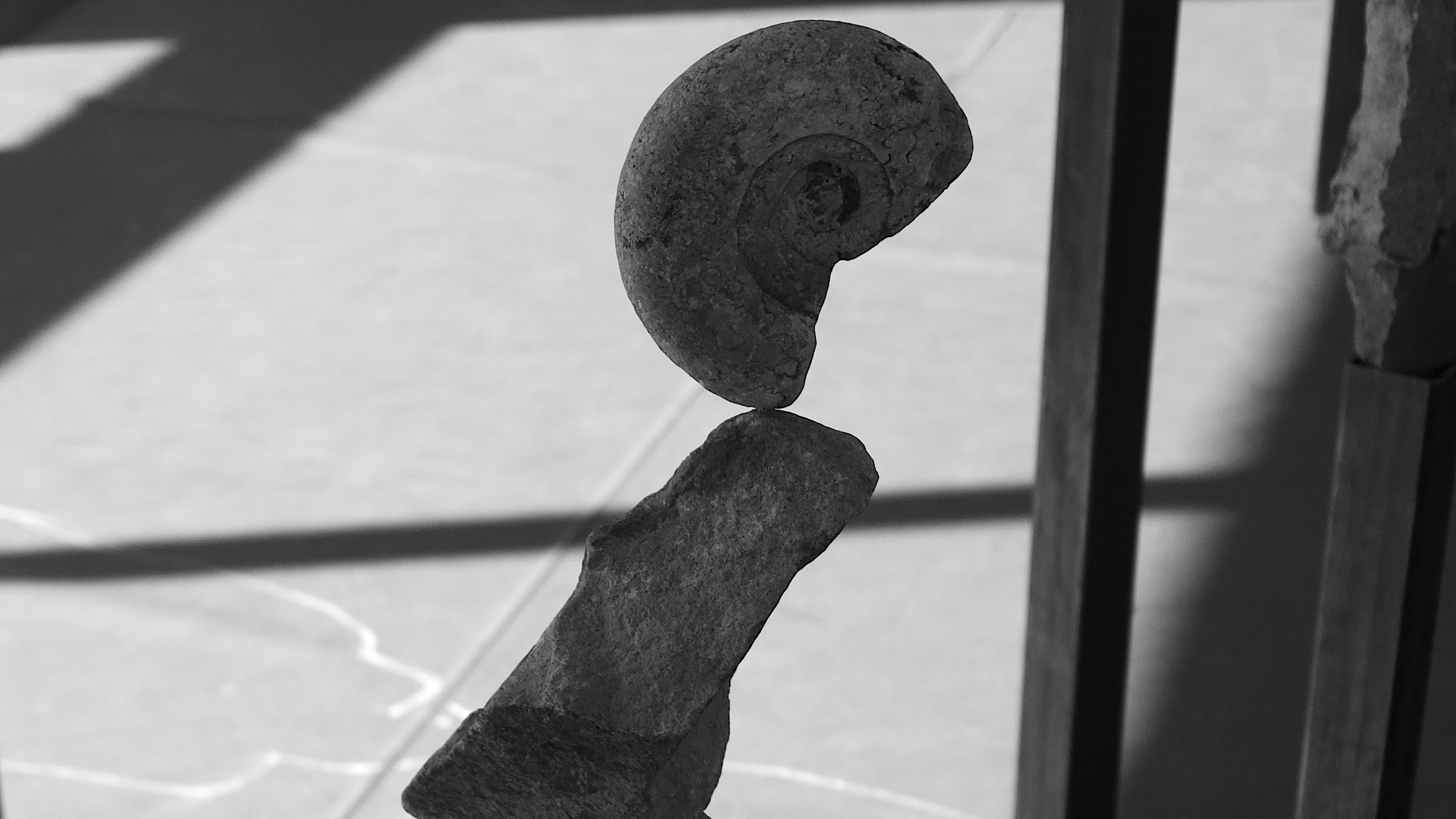- FREEZE
- • live performance • exhibition • 60 minutes or ongoing •
“It’s all about focus and “finding balance between your own force of will, and that of the stone”.
Freeze: To become motionless or immobile, as from surprise or attentiveness. To become unable to act or speak, to stop motion. To stop progress. To preserve. When we stop moving, we preserve. When we stop, everything else seems to move at a faster rate around us. When I concentrate on a rock everything else can disappear. I can be truly there, see its sharpness, feel its weight. I can feel its tipping point and admire its stillness. We can never be as silent. I can imagine this rock sees more than I ever can, for it is mostly motionless. It could experience this world. I can not enter its door. I can not go inside. The rock doesn’t experience an inside or an outside and therefore it does not really need a door. It doesn’t need to exclude me. I can turn it around, observe it from all angles and imagine the centre of gravity, imagine all the theoretical lines going through its heart I mean its centre. We can make a stone touch another stone. We can throw it in the ocean. The water makes place for the stone and the stone doesn’t need to fight for that space. I can imagine that after thousands of years it will have eroded into thousands of sand grains. Even then, those grains have no doors and this idea saddens me. I admire the rock. I admire it for having no wish, no need for recognition or possession and no need for doors. I imagine it doesn’t know about any limits. I wish I didn’t know about any limits. I wish I could become motionless. I wish I could freeze.
Awarded with the Laureate Young Theatre Award at TAZ Festival 2012
Awarded with the Scotsman Fringe First Award for outstanding writing 2013
photos: Nick Steur, Alastair Bett, Mieke Kreunen, Mark Gambino, Gert-Jan van Rooij
Nick Steur 2020 © All Rights Reserved

